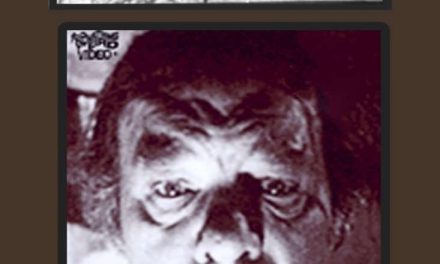Discussions of race have been central to television studies in the United States for decades. At the same time, race as an operative concept has been scarce in the histories of television outside the US. In Europe in particular, apart from the British context, race has been nearly invisible in academic engagements with television, despite the fact that television has been instrumental in postwar, postcolonial generations’ processing of traumatic, racialized histories and internalization of racial epistemologies. The transparency of normative whiteness and the indispensability of race as a category have become undeniable in the past decades marked by the end of the Cold War, global economic recession, nationalist retrenchment, mass refugee flows, anti-immigrant mobilization, Brexit and the consolidation of illiberal regimes of competitive authoritarianism in Eastern Europe. These developments have recently energized a renewed interest in the workings of race and racism across the disciplines in postcolonial and postsocialist Europe, and awakened long-dormant questions as to why and how race has been effaced or replaced by alternative categories such as ethnicity, nationality and religion.
This special issue will begin the work of documenting and understanding the many ways in which television has both perpetuated and critically interrogated racialized regimes in Europe and in European countries’ ongoing relationships to their postcolonial geopolitical spheres.
We welcome proposals that explore how postwar television in Europe has naturalized, confirmed and challenged racial categories and racialized relations in the course of the medium’s history, including its extended, postcolonial dimensions. We are interested in any work at the crossroads of race and television, both historical and contemporary, including areas such as aesthetics, representation, genre, labor, industry, marketing, advertising and reception. Those contributors engaging with issues of nation, region, ethnicity and culture are encouraged to situate/emphasize/explore the relation with race in their proposals.
Possible directions include:
- Representing racialized histories and racial encounters in European broadcasting
- The normalization of whiteness in and on European TV
- Race in fictional and current affairs programming
- Reality TV/ documentary programming’s engagement with multiculturalism and race
- TV’s migration crisis
- Sports programming and race
- Race and multiculturalism in the history of advertising
- Race and/in comedy
- East-West (Europe) differences in TV’s approaches to race
- The impact of American engagements with race and diversity in European TV
- Romani (on) TV
- Race, TV and the “War on Terror”
- Race, fake news, propaganda
- Race and nationalism in national broadcasting
- Streaming, quality drama and the localization of racial categories
- TV and the Holocaust
- Intersectional approaches to race
- Racialized reception histories
- Race and labor in the TV industries
- Racial policies: public broadcasting, EU policies
- Color-blind casting
- News anchors as representatives of racialized publics
- The roles of film stock and video technologies in representing people of color
- Meghan and Harry
Practical information and timeline
Contributions are encouraged from authors with different kinds of expertise and interests in media studies, television and media history.
Article proposals (max. 500 words) are due on June 1, 2020. Submissions should be sent to the managing editor through email (journal [at] euscreen.eu). A notice of acceptance of abstracts will be sent to selected authors by mid-July 2020.
Articles (between 3,000 – 6,000 words) will be due on November 2, 2020. Longer articles are welcome, provided that they comply with the journal’s author guidelines (https://viewjournal.eu/about/submissions/).
All articles will be peer-reviewed. The issue will be published in fall 2021.
For further information or questions about the issue, please contact its co-editors Aniko Imre (imre [at] usc.edu) and Sudeep Dasgupta (malchum [at] gmail.com).
About VIEW Journal
See www.viewjournal.eu for the current and back issues. VIEW is supported by the EUscreen Network and published by the Netherlands Institute for Sound and Vision in collaboration with Utrecht University, Royal Holloway University of London, and University of Luxembourg. VIEW is proud to be an open access journal. All articles are indexed through the Directory of Open Access Journals, the EBSCO Film and Television Index, Paperity and NARCIS.





